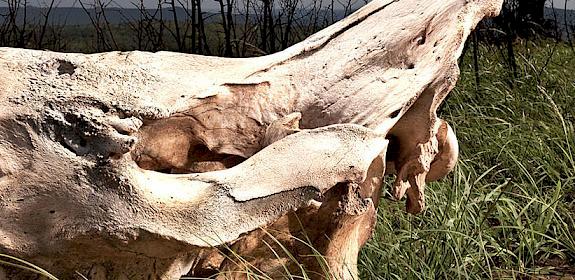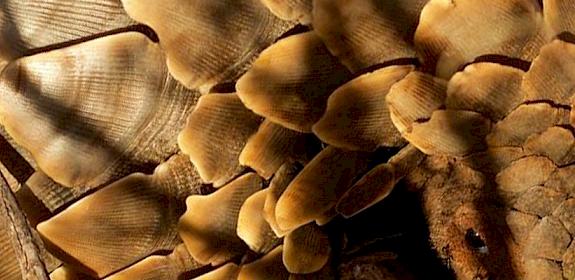Study calls for scrutiny of bear farms in Lao PDR
Kuala Lumpur, Malaysia, 26th April 2018—A study of Lao PDR’s bear farms suggests that foreign business ventures and tourism may be propping up the bear bile industry in the Economic Zone on the country’s border with China where bear farming facilities have tripled in size between 2012 and 2017, finds a new TRAFFIC study published in Global Ecology and Conservation.
Two of the seven commercial bear farming facilities near the Lao–China border housed 89 captive bears in 2017 compared to 30 in 2012. The highest number of bears, about 60 animals, was in Boten, located about a kilometre away from the Chinese border. This was followed by the Casino Zoo in Bokeo Province which had close to 30 animals. Between them, the two Chinese-owned farms accounted for 80% of the 116 bears found in the 2017 survey, researchers said.
“The history of trade and co-operation between Lao PDR and China means bilateral action is essential to addressing the farming of bears in Lao PDR,” said Kanitha Krishnasamy, Acting Regional Director for TRAFFIC in Southeast Asia.
“Law enforcement agencies must increase surveillance and monitoring of domestic and international wildlife trade, including in hotspots like Special and Specific Economic Zones, and shut down all establishments that sell wildlife illegally”.
Enforcement agencies from Lao PDR and China have previously met to improve cross-border collaboration on wildlife trade issues.
Although the authors found the overall number of farms with bears across Lao PDR had reduced by one and the overall number of bears only increasing by one since 2012, the number of captive bears held within the two northern facilities close to the Chinese border had tripled.
The Laotian government is said to be phasing out the bear farming industry in the country in line with the IUCN Resolution, but their efforts appear to be undermined by the expansion of commercial bear facilities in the north, particularly within the special economic regions that are heavily influenced by Chinese investments.
The findings highlight an active bear farming industry in Lao PDR, five years after an IUCN Resolution called for the closure of illegal bear bile extraction facilities in Lao PDR, South Korea and Viet Nam.
Boten and Bokeo largely cater to a Chinese market, where businesses are run by Chinese nationals, prices are given in Chinese Yuan, staff employed are ethnic Chinese, and mobile phones are on Chinese networks. Both locations are within Lao PDR’s Special and Specific Economic Zone, established to encourage economic growth.
“The reduced number of bear farms overall implies the bear bile industry may be on a downturn, except that the number of animals within some facilities has surged indicating the industry is vibrant in some quarters,” said Lalita Gomez, co-author and TRAFFIC Programme Officer.
“At a time when the global conservation community has spoken out against illegal bear farming, Lao PDR clearly needs to put in place a robust system that does not allow any party to exploit its Economic Zone privileges.”
Research also revealed at least 12 incidents where one to two Asiatic Black Bears, mostly cubs (amounting to 14 animals) were found held by private owners, all reportedly wild caught. While some owners claimed the animals were pets, most intended the animals for trade, likely for bear farms. This reaffirms the conclusion drawn in 2012 that bears are being poached from the wild to feed the demand.
The paper’s authors also urged the Laotian government to follow steps recommended by the Secretariat of the Convention on International Trade in Endangered Species of Wild Fauna and Flora (CITES), including developing and implementing legislative guidelines for farming bears and other endangered wildlife.




